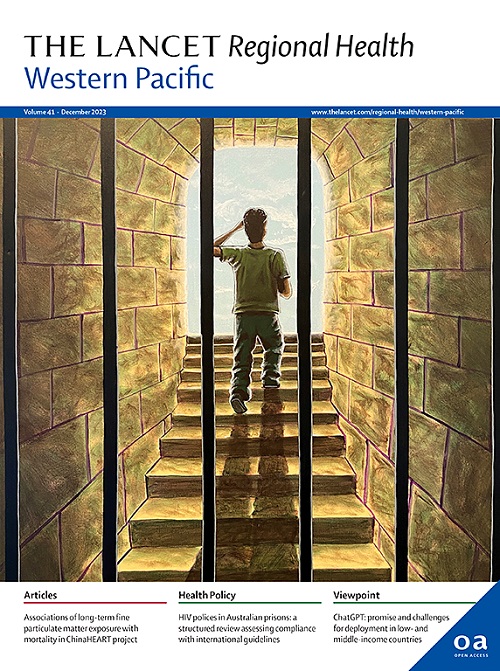中国进口抗癌药物审批中平衡未满足需求、收益和风险的监管灵活性:一项2012 - 2021年的队列研究
IF 7.6
1区 医学
Q1 HEALTH CARE SCIENCES & SERVICES
引用次数: 0
摘要
历史上,中国一直依赖进口新药来满足国内临床需求。然而,这些进口药物对当地临床试验的严格要求往往推迟了它们的市场批准,限制了患者及时获得。为了解决这一问题,中国在某些情况下实施了监管灵活性,允许在适当情况下加快审批程序。本研究旨在评估2012年至2021年在中国获准灵活审批的新型抗癌药物的特征,重点关注关键试验特征、临床益处、安全性和未满足的医疗需求。方法本队列研究选取2012 - 2021年中国国家药品监督管理局(NMPA)批准的所有新进口抗癌药物及其适应症。符合标准要求的适应症被归类为常规批准,而由有限的中国患者临床数据支持的适应症被归类为灵活批准。开发策略、关键试验特征和临床结果从公开的审查文件和药物标签中提取。未满足的医疗需求是根据两个方面进行评估的:标准治疗的可得性和药品的新颖性。我们使用卡方检验比较了灵活和常规批准之间的关键试验特征、疗效终点、安全性(严重不良事件)和未满足临床需求的程度。随机效应荟萃回归研究了灵活状态与总生存期(OS)和无进展生存期(PFS)的风险比(hr)之间的关系。根据审查文件的可获得性,在2012年至2021年期间批准进口到中国的59种新型抗癌药物中,56种产品有92种适应症被纳入了本分析。其中,48个适应症(52%)符合灵活批准条件,44个适应症(48%)获得常规批准。灵活审批数据集中涉及的中国患者中位数显著低于常规审批数据集(27例[IQR, 0-62]对165例[IQR, 99-245], p <;0.001)。早期阶段更经常支持灵活的审批(18/61 vs 1/60, p <;0.001)和单臂(22/61比1/60,p <;0.001)关键试验,反应率经常被用作主要终点(24/61 vs 1/60, p <;0.001)。meta回归分析显示,灵活的批准与改善的OS相关(HR 0.61 vs. 0.72, p <;0.01), PFS的相关性较弱(HR 0.39 vs. 0.51, p = 0.03)。灵活审批组严重不良事件发生率略高于常规审批组(43%比35%,p = 0.06),但差异不显著。灵活的批准更有可能用于没有可用现有药物的疾病(31/48 vs 10/44, p <;0.001)和同类新药(21/48比9/44,p = 0.03)。中国在批准进口抗癌药物方面的监管灵活性,使得国内临床数据有限的治疗方法能够获得。这些决定在很大程度上与潜在的更大临床效益和解决未满足的医疗需求的需要有关。该方法为全球监管实践的监管考虑提供了有价值的见解。通过采取类似的管理灵活性,其他国家可以提高药品可及性,并促进更具适应性的管理做法。基金资助:国家自然科学基金项目(72374119,82102886);北京市自然科学基金项目(7242114);本文章由计算机程序翻译,如有差异,请以英文原文为准。
Regulatory flexibilities balancing unmet needs, benefits and risks in the approvals of imported cancer drugs in China: a cohort study from 2012 to 2021
Background
China has historically relied on importing new drugs to fulfill domestic clinical needs. However, stringent requirements for local clinical trials for these imported drugs has often delayed their market approval, restricting timely access for patients. To address this issue, China has implemented regulatory flexibility in certain contexts, allowing for expedited approval processes when appropriate. This study aimed to evaluate the characteristics of novel cancer drugs qualifying for flexible approval in China from 2012 to 2021, focusing on pivotal trials features, clinical benefits, safety profiles, and unmet medical needs.
Methods
This cohort study identified all newly imported cancer drugs and their indications approved by the China’s National Medical Products Administration (NMPA) from 2012 to 2021. Indications meeting standard requirements were categorized as regular approvals, while those supported by limited clinical data from Chinese patients were classified as flexible approvals. Development strategies, pivotal trials characteristics, and clinical outcomes were extracted from publicly available review documents and drug labels. Unmet medical needs were assessed based on two dimensions: the availability of standard-of-care treatments and the novelty of medicines. We compared the pivotal trial characteristics, efficacy end points, safety (serious adverse events) and the extent of unmet clinical needs, between flexible and regular approvals using Chi-square tests. A random-effects meta-regression was conducted to examine the association between flexible status and hazard ratios (HRs) for overall survival (OS) and progression-free survival (PFS).
Findings
Among 59 novel cancer drugs approved for importation to China between 2012 and 2021, 56 products with 92 indications were included in this analysis, based on the availability of their review documents. Of these, 48 indications (52%) qualified for flexible approvals, while 44 indications (48%) received regular approvals. The median number of Chinese patients involved in the datasets for flexible approvals was significantly lower than for regular approvals (27 [IQR, 0–62] vs. 165 [IQR, 99–245], p < 0.001). Flexible approvals were more frequently supported by early-phase (18/61 vs. 1/60, p < 0.001) and single-arm (22/61 vs. 1/60, p < 0.001) pivotal trials, with response rates frequently used as the primary endpoint (24/61 vs. 1/60, p < 0.001). Meta-regression analysis revealed that flexible approvals were associated with improved OS (HR 0.61 vs. 0.72, p < 0.01), and a weaker association for PFS (HR 0.39 vs. 0.51, p = 0.03). The rate of serious adverse events was slightly higher, but not significantly, in the flexible approval group than the regular approval group (43% vs. 35%, p = 0.06). Flexible approvals were more likely to be indicated for diseases with no available existing drugs (31/48 vs. 10/44, p < 0.001) and for first-in-class drugs (21/48 vs. 9/44, p = 0.03).
Interpretation
China’s regulatory flexibility in approving imported cancer drugs has enabled access to therapies with limited domestic clinical data. These decisions are largely associated with the potential for greater clinical benefits and the need to address unmet medical needs. The approach offers valuable insights into regulatory considerations for global regulatory practices. By adopting similar regulatory flexibility, other nations could enhance drug accessibility and promote more adaptive regulatory practices.
Funding
This work was funded by National Natural Science Foundation of China (72374119, 82102886) Beijing Natural Science Foundation (7242114) and Beijing Nova Program.
求助全文
通过发布文献求助,成功后即可免费获取论文全文。
去求助
来源期刊

The Lancet Regional Health: Western Pacific
Medicine-Pediatrics, Perinatology and Child Health
CiteScore
8.80
自引率
2.80%
发文量
305
审稿时长
11 weeks
期刊介绍:
The Lancet Regional Health – Western Pacific, a gold open access journal, is an integral part of The Lancet's global initiative advocating for healthcare quality and access worldwide. It aims to advance clinical practice and health policy in the Western Pacific region, contributing to enhanced health outcomes. The journal publishes high-quality original research shedding light on clinical practice and health policy in the region. It also includes reviews, commentaries, and opinion pieces covering diverse regional health topics, such as infectious diseases, non-communicable diseases, child and adolescent health, maternal and reproductive health, aging health, mental health, the health workforce and systems, and health policy.
 求助内容:
求助内容: 应助结果提醒方式:
应助结果提醒方式:


